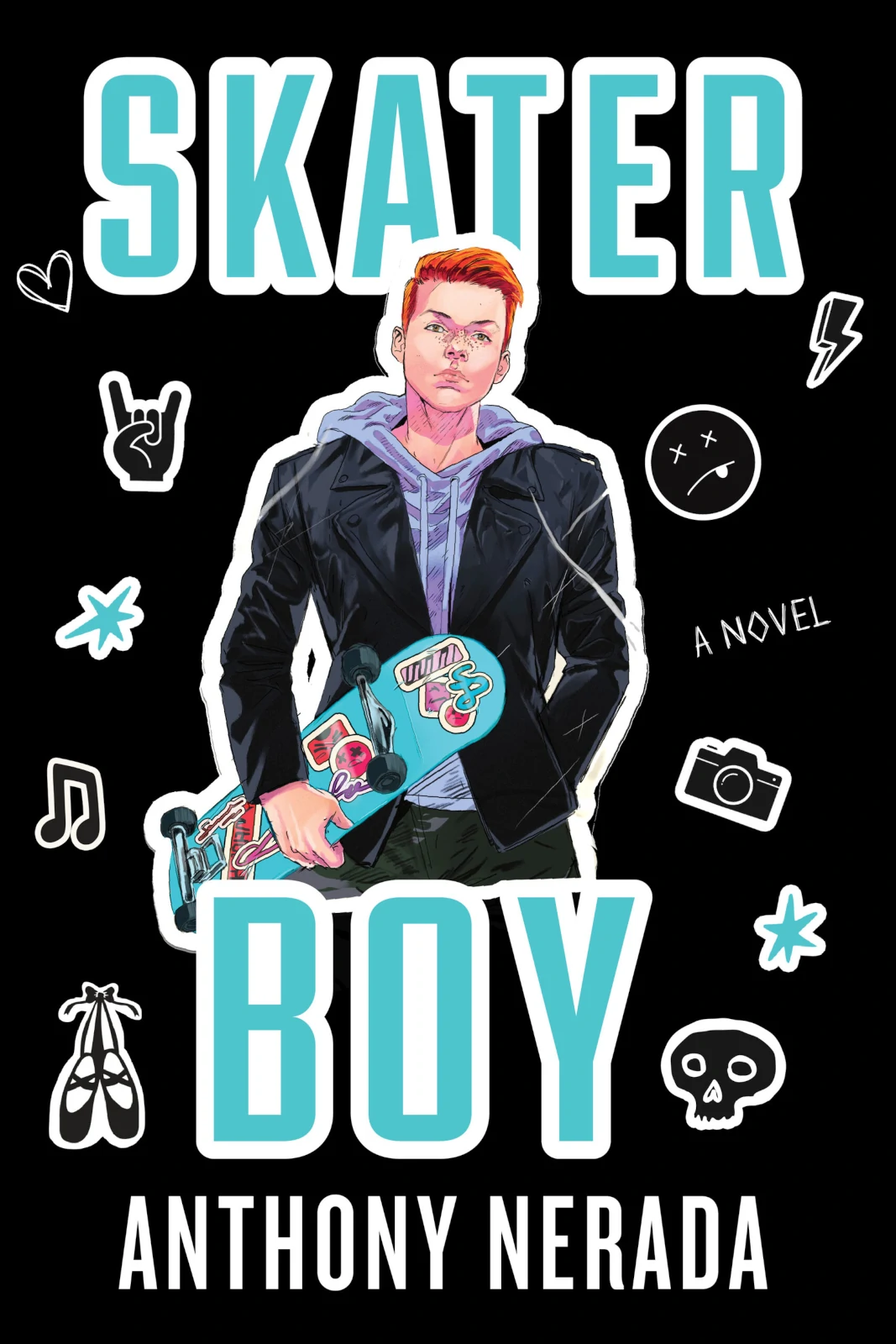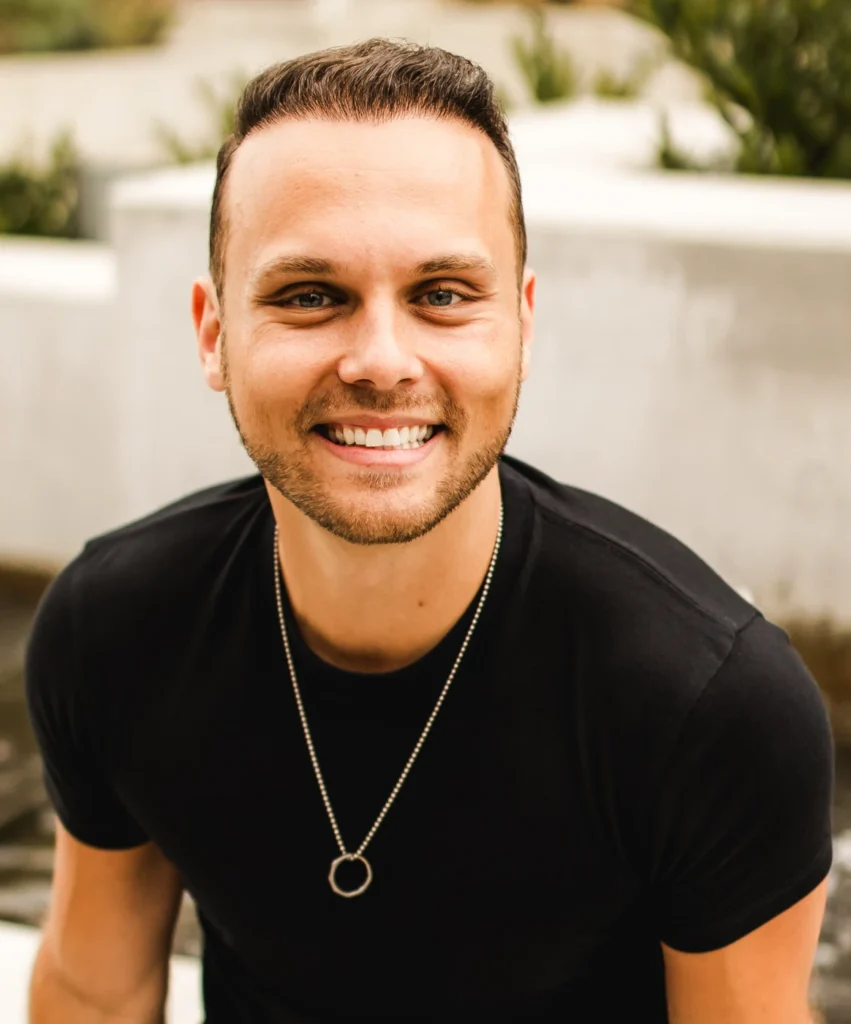
An Interview with Anthony Nerada
Words By Anthony Nerada, Interviewed by Inanna Carter
Skater Boy is your debut novel—congratulations! What was your biggest struggle when writing this story, and how did you overcome it?
Thanks so much! After a lifetime of writing (and perhaps a borderline unhealthy dose of wishful thinking), it is very surreal to know this story is now out in the world.
My biggest struggle in writing Skater Boy was creating a believable angry character that people could relate to, and maybe even want to root for, by the end of the story. When readers first meet my main character, Wesley “Big Mac” Mackenzie, he is quite literally confronting another character on the page, which I’m sure will elicit a visceral response in many. So, the main question quickly becomes—how do you take this person you’re supposed to hate and craft a story around them that leaves readers feeling satisfied? In Wes, I wanted to bring a character to life who doesn’t often get their story told—a gay kid on the outskirts who is conflicted and confused and maybe even operates in unhealthy ways—and show that there is so much more to them than how they present themselves to the world. To overcome this as a writer, I kept asking myself, what would I like to see Wes do to come to terms with himself? And sure enough, the answer ended up being a lot easier than I anticipated. It meant showing Wes interacting with the world and putting him up against situations and people he wouldn’t normally come across. In watching him break down his own barriers throughout the novel, I hope readers learn to love Wes—faults and all.
I’m seeing more and more queer YA books being published! However, the industry still has a way to go. Were there any challenges you’ve faced with this story?
Right from the start, I knew Wes’s story would be a hard sell. In an industry that historically only published young adult books that featured palatable gay characters—ones who always made the right choices, only ever expressed happiness, and never mentioned anything even remotely associated with sex—where exactly does Skater Boy fit? So, unsurprisingly, when it came to being on submission, I faced rejection after rejection for nearly two years from editors who couldn’t connect with Wes or didn’t have an editorial vision for the story. And I can’t fault them for that; when we’re constantly fed only one side of a story, it’s difficult to imagine what to do when confronted with the other. That is why I am so thankful for Soho Teen, and specifically my editor, Alexa Wejko, for taking a chance on me. Right from the start, Alexa inherently understood what Wes was about and loved him anyway.
What did your writing process look like for Skater Boy? Did you outline? Do you just go for it? Will you do the same for your future novels?
When it comes to writing, I am a chronic plotter (though in the editing stages I tend to write by the seat of my pants and will randomly throw in scenes or dialogue I make up on the fly). Typically, though, the overarching storyline comes to me first, so I like to jot down all the major plot points on cue cards and organize them on a corkboard so I can visually see what my story looks like. Of course, when it comes to character development, that usually throws a wrench in my plans, but for the most part, laying out every chapter helps me stay organized and on task.
Skater Boy touches on some extremely important topics—the idea of being labeled, the BLM movement, harmful stereotypes. What made you think, “This is something I have to write. Something I must put out there?”
I don’t think I necessarily went into this story knowing I would touch on such large/important topics, but as I got to know my characters more, I knew I couldn’t ignore them. I touch on this briefly in the Author Note at the beginning of Skater Boy, but I originally set out to write a light-hearted romantic comedy that paid tribute to its namesake. However, it was only after better understanding Wes’s internal motivations, that I realized that wasn’t the story I had to tell. Even with Tristan—Wes’s love interest—I couldn’t write a Black secondary character, at the height of the BLM movement, without acknowledging (even as an outsider) how being a Black male teenager in the United States would inform his own lived experience. In many ways, throughout the length of this story, Wes is exposed to several different lived experiences outside the narrow reaches of his own life, and it’s through them that he learns more about the world around him and grows. Whether we like it or not, everyone has dealt with labels or harmful stereotypes in some way (especially in high school), so making sure I touched on these topics become paramount to the story and helped inform many of Wes’s actions throughout it.

Are there any books coming out in 2024 that you’re looking forward to, and why?
Where do I even begin? I’ve had the absolute pleasure of beta-reading some incredible young adult novels coming out in 2024 and am so excited for readers to experience this new wave of queer stories filled to the brim with messy “gray” characters like Wes.
Some recent favorites include: Teenage Dirtbags by James Acker, The Last Boyfriends Rules for Revenge by Matthew Hubbard, and Cursed Boys and Broken Hearts by Adam Sass.
I always say, when I begin reading a story and immediately think “Wes would probably be great friends with this character,” I know I’m in for a real treat!
What are you working on now? Can we expect them to be the same genres as Skater Boy (YA, queer) or are you branching out into something different?
I am always ideating and brainstorming— my Notes app in my phone is a true testament to the chaos of my imagination, haha— so when it comes to branching out into something different, I never say never! For now, though, I have a few more contemporary/romance stories in the pipeline including a dual POV contemporary set in Los Angeles amongst the real-world events surrounding the L.A. Dodgers/Pride Night controversy that happened this past summer. I like to think of it as What If It’s Us by Becky Albertalli and Adam Silvera meets This Is Why They Hate Us by Aaron H. Aceves, with a focus on queer activism and joy as anti-LGBTQIA+ hate crimes are at an all-time high. It has similar, underlining themes that are present in Skater Boy, while also looking at what it means to be a queer teenager in the spotlight.
If you could give one, general piece of advice to aspiring authors out there, something that they should follow to the ends of the earth, what would it be?
This may sound cliché, and it’s said time and time again for a reason, but just keep writing. I was in the querying trenches for ten years before I landed my first agent and then spent two years on submission with Skater Boy. It would have been so easy just to give up, but instead of focusing on every rejection, I continued to write, I read and absorbed as much as I could, and I honed my craft. Every time you put pen to paper, or fingers to a keyboard, you are expanding your horizons and improving your skills as a writer, so don’t give up! It just takes one yes to make all your dreams come true.
You left a very meaningful message at the beginning of your novel. To those of your readers who can see themselves in Wes, those who have lost sight of who they are, what are you hoping they can find by the end of Skater Boy?
That really means a lot to me. It’s funny you should mention that because the Author Note at the beginning of Skater Boy was only ever meant to be in the advanced reader copies (ARCs). But after some initial feedback from early readers on the importance and resonating impact of that message, we decided to keep it in.
I wrote Skater Boy as much for myself as for all the queer kids out there who feel they don’t belong— because the reality is that being queer is not a monolith, it’s up to you to decide what that looks like for you. By the end of the story, I hope readers understand that no matter where they are in their journey of self-discovery, no matter how the world sees them, it is never too late to embrace the person they were always meant to be. Labels and expectations be damned!